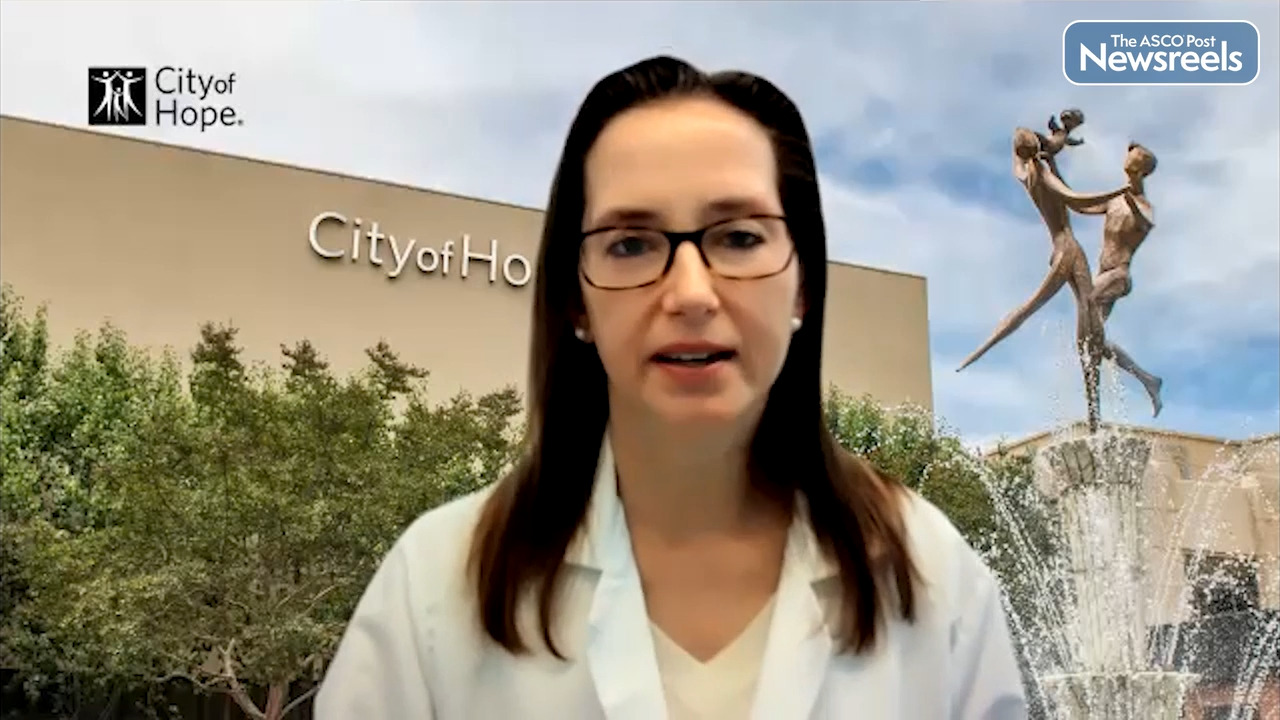Kim Nguyen Chi, MD, on Prostate Cancer: New Findings on Niraparib, Abiraterone, and Prednisone
2022 ASCO Genitourinary Cancers Symposium
Kim Nguyen Chi, MD, of the University of British Columbia, BC Cancer-Vancouver Center, discusses first phase III results from the MAGNITUDE study, which explored the use of the PARP inhibitor niraparib with abiraterone acetate and prednisone as first-line therapy in patients with metastatic castration-resistant prostate cancer with and without homologous recombination repair gene alterations (Abstract 12).
The ASCO Post Staff
Hielke-Martijn de Vries, MD, of the Netherlands Cancer Institute, discusses phase II findings on the use of atezolizumab with or without radiotherapy for patients with advanced squamous cell carcinoma of the penis. The study was designed to address the poor prognosis for this disease by exploring whether a protracted schedule of radiotherapy for locoregional disease, in combination with immunotherapy, could improve outcomes (Abstract 3).
The ASCO Post Staff
Matthew R. Zibelman, MD, of Fox Chase Cancer Center, discusses phase I/II results from a study of treatment-naive patients with advanced renal cell carcinoma who received a combination of the immunotherapy (IO) nivolumab and the tyrosine kinase inhibitor (TKI) axitinib. The findings suggest that the efficacy of this regimen is comparable to that of currently available IO/TKI combinations for this population and has a similar safety profile (Abstract 291).
The ASCO Post Staff
Toni K. Choueiri, MD, of Dana-Farber Cancer Institute, discusses a 30-month follow-up of results from the KEYNOTE-564 trial, which further support the use of adjuvant pembrolizumab when treating patients with renal cell carcinoma at intermediate-high or high risk of recurrence, or with an M1 NED (no evidence of disease) status after nephrectomy. The data show a disease-free survival benefit vs placebo (Abstract 290).
The ASCO Post Staff
Matthew R. Smith, PhD, MD, of Massachusetts General Hospital Cancer Center, discusses overall survival findings from the ARASENS trial, which assessed the efficacy of the androgen receptor inhibitor darolutamide vs placebo in combination with androgen-deprivation therapy and docetaxel for patients with metastatic hormone-sensitive prostate cancer (Abstract 13).
The ASCO Post Staff
Tanya B. Dorff, MD, of City of Hope National Medical Center, discusses the first-in-human phase I findings showing that prostate stem cell antigen (PSCA) CAR T-cell therapy is feasible in patients with metastatic castration-resistant prostate cancer, with preliminary antitumor activity exhibited.





